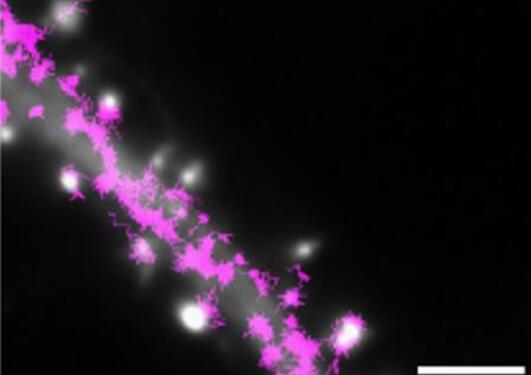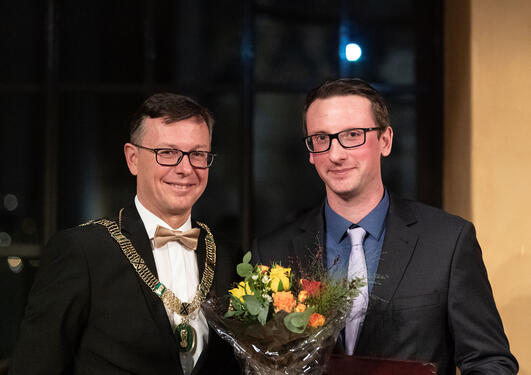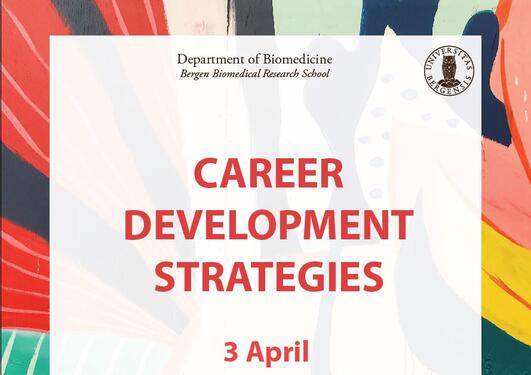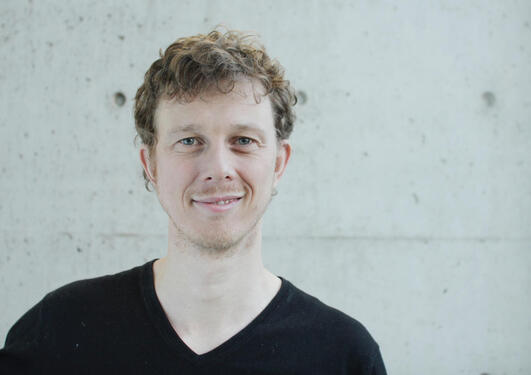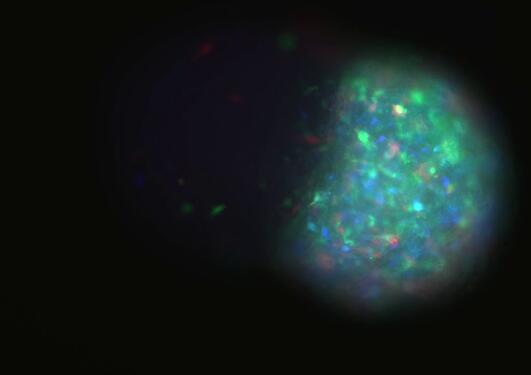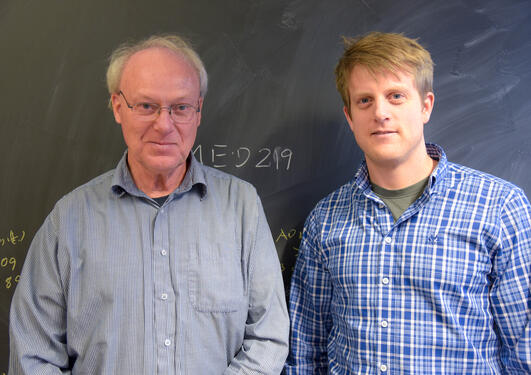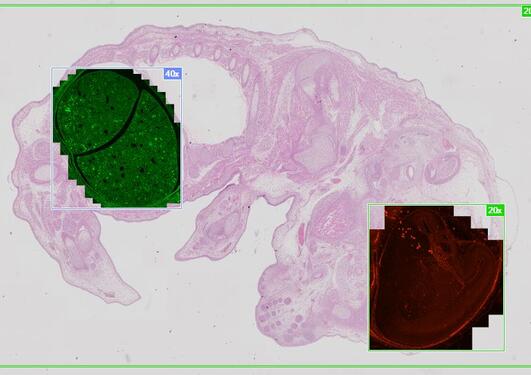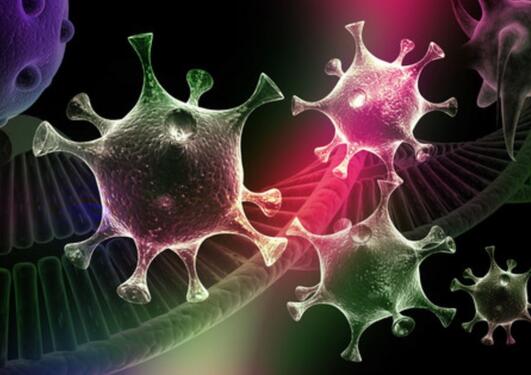News archive for The Department of Biomedicine

The candidate will give a trial lecture and defend her doctoral thesis with the title: “The role of AXL and the tumor microenvironment in cancer cell plasticity and therapy responses"
In Huntingtons Disease, patients suffer from cognitive deficits and psychiatric disturbance, and later also from a devastating loss of movement control. Researchers at the Department of Biomedicine have identified some of the molecular events that occur in the brain in Huntingtons Disease.
Cancer is a complex disease caused by a multitude of factors gone wrong in the cell. NAA10 may be one such factor. This is a protein that performs many different tasks, including the most common which is catalyzing the acetylation of cellular proteins. NAA10 can therefore be viewed as a ”Jack of all trades”-protein. For two decades it has been linked to cancer progression, but recent data puts... Read more
Adrian Drazic, post doctor at the Department of Biomedicine, is one of the recipients of this years award for outstanding young researchers by the Meltzer Foundation.

The candidate will give a trial lecture and defend his doctoral thesis with the title: “The Characterization of Disordered Membrane-Binding Proteins of Myelin: A Biophysical Approach"
A lecture on how to implement career development in PhD-training in the future.
A workshop on careers options, strategies & tactics for life scientists
Young research talent Nils Halberg gives a trial lecture for a faculty position in biomedicine.

"The role of AXL and the tumor microenvironment in cancer cell
plasticity and therapy responses"
Professor Rolf Bjerkvig at the research group for translational cancer research explains how the researchers make miniature brains and investigate how the cells move in and out of tumor tissue
In the elective subject ELMED219, father and son Lundervold give an introduction to the secret of artificial intelligence and how it can be used in clinical work.
Monica Hellesviks winning poster “NAA80 knockout cells: Fast and Furious?” scores with elegant simplicity and effective communication of scientific results.

The candidate will give a trial lecture and defend his doctoral thesis with the title: “Attention-deficit/hyperactivity disorder and autoimmune diseases: etiological relationships and therapeutic possibilities”

Attention-deficit/hyperactivity disorder and autoimmune diseases: etiological relationships and therapeutic possibilities
There are over 100 tumor types only in the central nervous system. The Translational Cancer Research Group at the Department of Biomedicine provided data and material for a new diagnostic tool that will make it easier for cancer researchers to see the difference.
Pages
- 2025
- 2024
- 2023
- 2022
- 2021
- 2020
- 2019
- 2018
- 2017
- 2016
- 2015
- 2014
- 2013
- 2012
- 2011
- 2010
- 2009
